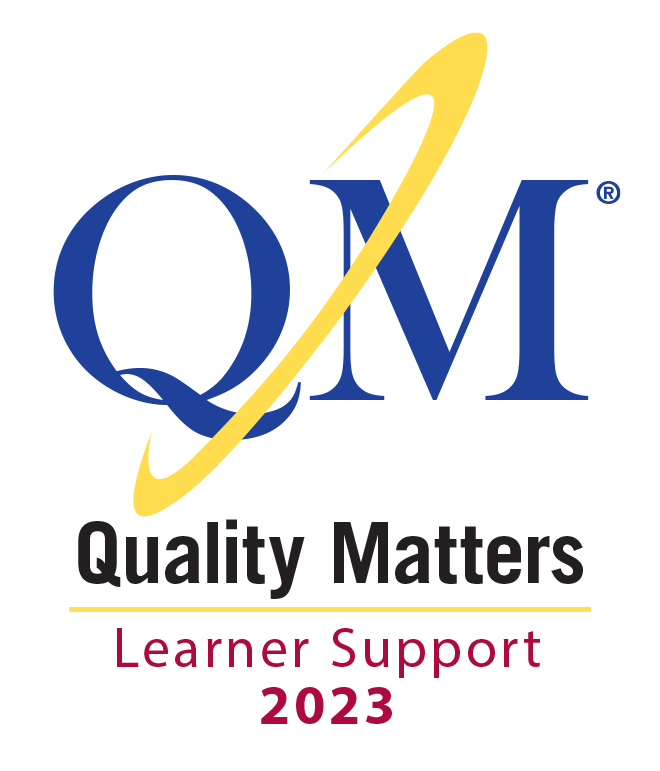Questions? Request Information
Take Control of the Future of Finance
The Master of Science in Finance from the University of Arizona Global Campus (UAGC) will prepare you to be a leader in the important field of finance. This program will lay the foundation for continued growth in the financial industry while focusing on strategic financial management and financial analytics with an emphasis on overall business goals. The online master’s in finance offers an extensive curriculum in finance and prepares students with the competencies needed to explore a variety of careers in financial analytics or management.
This program was created to help you become proficient in technical and analytical skills related to finance and to develop expertise in financial problem-solving and financial decision-making. When you successfully complete the MS in Finance degree program, you will be able to:
- Apply appropriate principles of valuation for financial assets and securities
- Assess investment and financial practices to assess an organization’s value
- Design appropriate risk-management strategies based on an evaluation of an organization’s financial risk
- Evaluate the trade-off between risk and return on investment management
- Utilize ethical and professional standards in the financial decision-making process
- Measure the return on investment of corporate initiatives and policies for organizational strategic decision-making
- Make financial recommendations for an organization with consideration to a global perspective
Military Students $250.00/credit
Master’s in Finance Courses $740.00/credit
Technology Fee** $115.00/course
Books and Other Class Materials** $125.00/average per course
Graduation Fee $150.00
Total Program Cost See UAGC Catalog¹
¹Keep in mind that this figure doesn’t factor in any potential discounts, partner benefits, or impact of accepted transfer credits, if eligible.

UAGC offers enrolled students access to ScholarshipUniverse, a platform that tailors external scholarship opportunities to your unique situation, making it easier to find and apply for scholarships.
UAGC is proud to provide reduced tuition rates for our academic and corporate partners, helping community college transfer students and corporate employees earn their degrees at a lower cost.


MS in Finance Degree Curriculum Overview
The Master of Science in Finance degree program offers a robust curriculum in finance and investment. You will gain a deeper knowledge of key financial topics such as financial analysis, statistics, economics, portfolio management, accounting, and international finance.
Applicants seeking admission to the Master of Science in Finance degree program are required to meet the following requirements:
Have a bachelor's or master’s level degree in accounting, business administration, economics, or finance from an approved accredited college or university with a grade point average (GPA) of 2.0 or above*.
*Unofficial or official transcripts showing an earned degree in the area of accounting, business administration, economics, or finance must be submitted with the Application for Admission.
In order to meet admission requirements, applicants without the previously mentioned bachelor’s or master’s-level degrees will be required to request a waiver and submit unofficial or official transcripts showing:
- An earned bachelor’s degree in engineering from an approved accredited college or university with a grade point average (GPA) of 2.0 or above demonstrating completion of fifteen (15) undergraduate credits in accounting [9 credits], statistics [3 credits], and finance [3 credits] with a grade of “C” or higher or demonstrate equivalency prior to admission; or
- An earned bachelor’s degree from an approved accredited college or university with a grade point average (GPA) of 2.0 or above demonstrating completion of twenty-four (24) undergraduate credits in accounting [9 credits], statistics [3 credits], and finance [12 credits] with a grade of “C” or higher or demonstrate equivalency prior to admission; or
- Applicants with a bachelor’s degree in fields other than accounting, business administration, economics, or finance that can document prior work experience equivalent to the knowledge found in a preferred program may request a waiver. For a waiver based on work experience to be successful, an applicant’s work experience must demonstrate (1) in-depth activities related to preparing, analyzing, and interpreting corporate financial statements and (2) advanced application of financial theory. Waivers based on work experience are granted in exceptional cases. If a waiver based on work experience is not granted, applicants will be required to demonstrate successful completion of the credits as outlined above prior to admission.
It will be incumbent upon the student to provide evidence and documentation through the waiver process that is satisfactory to the Dean or designee for UAGC.
Full Admissions Requirements
The following requirements must be met prior to the conclusion of the third (3rd) attempted the University of Arizona Global Campus course in a degree-seeking program. To start the fourth (4th) course, students must complete all the requirements subsequently outlined and must meet all admissions requirements applicable to their specific degree program. Students who do not complete all requirements will not be fully admitted and will be withdrawn from the program.
Submission of an official transcript from an approved accredited institution that awarded the accounting, business administration, economics, or finance baccalaureate or post-graduate degree indicating a minimum GPA of 2.0 with a degree conferral date prior to the start of the first course at the University of Arizona Global Campus University, or an approved waiver prior to the start of the first course at the University of Arizona Global Campus.
This program is not designed to meet the state educational requirements for a specific professional license or certification in any state. Students seeking licensure or certification in a particular profession shall carefully research the requirements prior to enrollment and regularly review the requirements as they are subject to change. Requirements vary by state. The University of Arizona Global Campus does not guarantee that any professional organization will accept a graduate’s application to sit for any exam for the purpose of professional certification. Further, a criminal record may prevent an applicant from obtaining licensure, certification, or employment in their field of study.
Certain degree programs may not be available in all states.
The Online Teaching Support Certification recognizes programs that require all online faculty to undergo training in best practices for online course delivery, provide faculty with ongoing pedagogical support, encourage faculty professional development to increase their knowledge and skill in online teaching, emphasize instructor availability and feedback to learners, and collect and use feedback from learners to improve online teaching. Learn More

The Online Learner Support Certification recognizes programs that provide all the critical student and academic services needed for learner success and use learner feedback to continuously improve those services.

What Can I Do with a Master’s Degree in Finance?
The Master of Science in Finance degree was designed to enhance lifetime value since it lays the foundation for continued growth in the financial industry. Graduates from this program may be able to pursue career opportunities such as:
- Branch Manager
- Research Analyst
- Portfolio Manager
- Financial Analyst
- Investment Analyst
Gain insights into the finance job market by reviewing the Bureau of Labor Statistics market outlook report.
I loved that the process was simple. Some schools make getting started or continuing your education extremely hard. The classes were engaging and challenging.
Online Master’s in Finance FAQs
-
Earning a master's in finance from UAGC may be highly beneficial. This degree provides specialized knowledge in areas such as financial analysis, investment strategies, and risk management, which are essential for roles like financial analyst, investment banker, or portfolio manager.
-
At UAGC, you’ll take one master’s degree course at a time in six-week intervals, allowing you to balance school, work, and family commitments, while still being able to access your online classroom from anywhere. With 39 credits across 13 courses, the online master’s in finance program can be completed in less than two years.
-
A master's in finance focuses on finance-related topics, while an MBA provides a broader business overview. Your choice depends on your career goals: choose an MS in Finance for specialized financial expertise or an MBA for broader business leadership.
-
The Master of Science in Finance degree program offers a robust curriculum in finance and investment. You will gain a deeper knowledge of key financial topics such as financial analysis, statistics, economics, portfolio management, accounting, and international finance.
See What Else UAGC Has to Offer
Questions? Request More Information
To access this rate using the Liberty Grant, only eligible undergraduate active duty service members, members of the National Guard, Reservists, spouses of active duty, members of the National Guard and Reservists, Department of Defense employees using Tuition Assistance (TA), and civilian employees of the United States Coast Guard (only if utilizing Military Tuition Assistance) will qualify.
**
The Technology Fee covers access to University systems such as the online classroom, the Student Portal, and other academic resources. The Technology Fee and the Course Digital Materials (CDM) Fee are fully refundable if a student does not attend beyond Day 3 of a course (Week 3 if covered under the University of Arizona Global Campus Promise Refund Schedule). After this time, the fee becomes non-refundable. Students are charged the Technology Fee for repeated coursework. Students are not charged the CDM fee for repeated coursework if previously charged.
†
The transferability of credits is subject to the University of Arizona Global Campus transfer credit policies and requires the submission of official transcripts. The official transcripts will be evaluated by the Registrar’s Office to determine the credits that will officially apply toward a UAGC degree program. Credits must be earned at the same degree level in order to be applied. Additional restrictions may apply. See the UAGC Academic Catalog for full undergraduate and graduate transfer policies.




